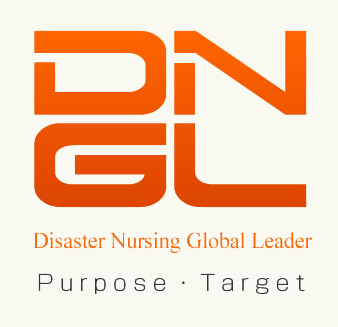
The torrential downpour in July 2018 resulted massive flooding in Japan, and different regions of Japan suffered great damages to lives and properties. Me, as a non-Japanese nursing student, got an opportunity to visit Kurashiki city for 3 days from 20th to 22nd July, 2018. The aim of the visit was to compare the similarities and differences of needs with the disaster situations in Nepal and to learn about the nursing roles at times of disaster.
To address the aims, firstly, different evacuation centers in Kurashiki city were visited, and it was noticed that the basic needs were managed at the evacuation centers. Since it was the sub-acute phase, most of the works were concerned with cleaning of the victims’ houses, and many volunteers from all over the country were at the site. The perceived problems were heat stroke, eye and throat problems due to dust, lack of young people to perform cleaning tasks, geographic vulnerability (people of Mabi area evacuating to Kurashiki City areas), necessity of varieties in food, necessity of mental support not only to the survivors in evacuation centers but also to the whole local residents including non-affected local family caregivers or survivors. Comparing this situation with Nepal, Nepal doesn’t have evacuation centers, and the problems of basic needs insecurity affect most during disasters in Nepal as well.
Next activity performed was the Basic Life Support (BLS) volunteering. Joining with the Basic Life Support (BLS) volunteering team at Mabi-cho, 8-10 volunteer workers at the cleaning site for heatstroke and injuries were received, and were treated and referred as required. With the help of the team, I transformed Japanese forms to English and practiced together. Further, for the cleaners, who often ignore heat stoke signs and symptoms, we asked them individually whether they are feeling well or not, then distributed fluids, ice packs and cared everyone. Unfortunately, I was not able to gain the experience of nursing volunteer at the evacuation centers.
Regarding nursing roles, their role was to identify the needs and plan the proper actions. Nursing roles were a direct care provider, on-site coordinator/leader, educator, and mental health counsellor. Since it was extremely hot, the major nursing role was to educate and provide primary health care to prevent heat stroke.
To conclude, Japan is regarded as the country with a good disaster management. However, the system is somehow rigid that the foreigners are not allowed to care for people. Foreigners population in Japan is increasing at an alarming rate. Thus, it is recommended to develop some flexible policies and training for the foreigners so as to save many lives in upcoming mega-disasters.
(by Sushila Paudel)


HOME > report > [Report] Kurashiki Flood Disaster 2018: An experience report of Non-Japanese Nursing Volunteering [Report] Kurashiki Flood Disaster 2018: An experience report of Non-Japanese Nursing Volunteering |
|
This program has been adopted as "Program for Leading Graduate Schools of 2012" by MEXT.
|
